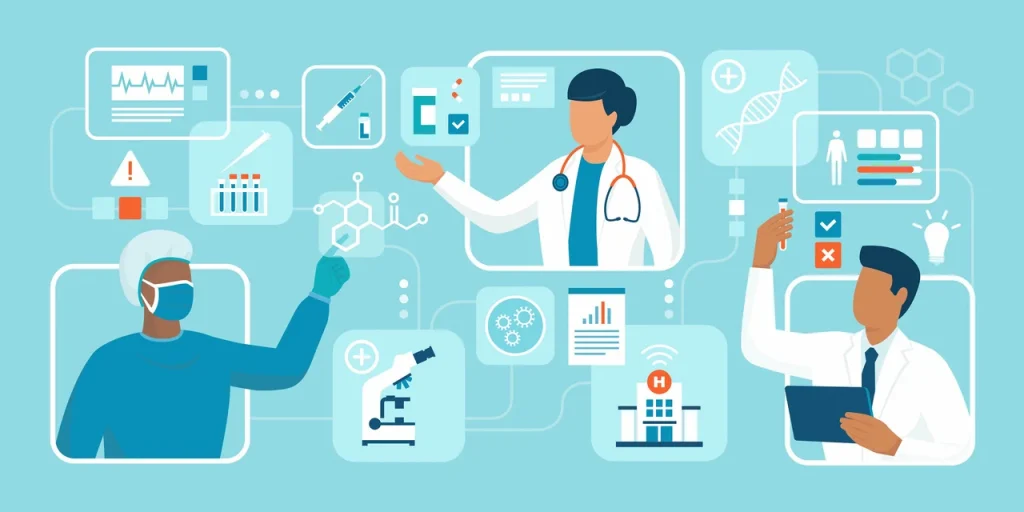How Clinical Trials Propel Advances in Lung Cancer Treatment
The Role of Clinical Trials in Medicine
In the transformative journey of medical research, clinical trials for lung cancer are indispensable tools that pave the way for breakthroughs in treatment. They meticulously assess the safety and efficacy of experimental therapies, offering insight into how they perform under real-world conditions. This structured approach is not merely academic; it is integral to bridging experimental science with patient care, ensuring that new treatments are effective and safe. Each clinical trial contributes a building block in the edifice of medical advancement, with findings often leading to paradigm shifts in how diseases like lung cancer are managed globally.

As highlighted by the National Cancer Institute, these trials do not only cater to drug development but also embrace innovations in prevention, diagnostics, and treatment strategies. With millions battling lung cancer worldwide, clinical trials are vital platforms where science meets patient needs, driving forward the goal of conquering this formidable disease. Moreover, the evolution of trial designs to include adaptive methodologies and real-world data integration signifies a transformative era in personalized medicine.
Phases of Lung Cancer Trials
Clinical trials are meticulously organized into phases, each as a crucial checkpoint in evaluating new therapies. Understanding these phases reveals the depth of scrutiny a new drug undergoes before reaching the public:
- Phase I: This initial phase focuses on the safety profile of a new drug. It involves a small group of participants to determine an appropriate dosage range and identify side effects. The primary objective is to establish the highest dose of the new treatment that can be given safely, often referred to as the “maximum tolerated dose.” These assessments are essential for setting the stage for further testing.
- Phase II: Expanding on the learnings of Phase I, this phase evaluates the drug’s efficacy while continuing to monitor safety. It generally involves a larger participant group and aims to provide preliminary data on whether the drug works in people with a certain disease. This phase helps to refine the effective dosage and preparation of larger-scale investigations.
- Phase III: Often encompassing hundreds to thousands of participants, this phase aims to confirm effectiveness, monitor side effects, and compare the drug to commonly used treatments. Successful completion of Phase III is pivotal for securing regulatory approval. The scale and breadth of these studies offer a compelling argument for the efficacy and safety of new treatments, potentially altering current clinical practices.
- Phase IV: Once the drug is approved, this phase aims to gather additional information on the drug’s risks, benefits, and optimal use. Understanding long-term efficacy and any rare side effects that can only be observed in more diverse populations over extended periods is essential. This ongoing evaluation is crucial for refining treatment protocols and ensuring patient safety in the general population.
This phased approach to lung cancer trials ensures that treatments undergo rigorous testing to ascertain their safety and efficacy, fortifying public trust in new medical interventions. Through this detailed process, the potential for improved patient outcomes becomes a reality, turning the tide against diseases that have long eluded definitive solutions.
Innovative Treatments Emerging from Trials
In the ever-evolving field of oncology, clinical trials have been instrumental in ushering in new waves of innovative treatments. Specifically, lung cancer has seen remarkable progress through developments in targeted therapies and immunotherapies. These treatments focus on the molecular and genetic markers of cancer, offering a more precise attack on cancer cells with potentially reduced harm to healthy cells. The rise of personalized medicine, largely driven by the insights gained from clinical trials, allows treatments to be tailored to individual patients’ genetic profiles, enhancing efficacy while minimizing adverse effects.
Exploring personalized and targeted therapies has unlocked new possibilities for patients, especially those for whom traditional treatments offer limited relief. Emerging studies highlighted in recent research summaries emphasize the effectiveness of these tailored therapies in improving patient outcomes, showcasing how clinical trials are not just experiments but a pathway to real-world patient benefits. This shift towards more nuanced treatment strategies underscores the role of innovation in overcoming the complex challenges posed by lung cancer.
Ensuring Ethical Standards and Safety
The ethical framework guiding clinical trials is paramount, ensuring participant safety and research integrity. Institutional Review Boards (IRBs) meticulously review study protocols, safeguarding participants by ensuring trials adhere to ethical standards and legal requirements. These boards enforce ethical conduct, reviewing informed consent processes and evaluating potential risks against anticipated benefits.
This scrutiny ensures that trials are conducted with transparency and that the rights and welfare of participants are protected. Through this robust ethical oversight, clinical trials maintain scientific validity and public trust, which are essential components in fostering a collaborative environment for innovation. In this light, participants can feel confident that their involvement serves a greater purpose while being shielded by rigorous ethical and safety protocols. Any breach or lapse not only jeopardizes patient safety but also risks the credibility of the research, which is why ethics forms the backbone of successful clinical trial conduction.
Patient Perspectives and Involvement
From a patient’s viewpoint, participating in a clinical trial often represents a beacon of hope. These trials provide access to state-of-the-art treatments and intensive medical monitoring, potentially offering options when conventional therapies have been exhausted. Participation is more than just receiving cutting-edge treatment; it is an opportunity to contribute to developing therapies that might help others in the future.
The trial participants’ narratives frequently emphasize their dual role—seeking personal healing while altruistically contributing to a greater cause. Through their involvement, they advance treatment options for future patients and help reshape the landscape of cancer therapy. Their collective experiences infuse rich, real-world insights into the scientific pursuit of finding more effective treatments, illustrating the invaluable contribution of patient stories to medical advancements.
The Power of Global Collaboration
With increasing globalization, clinical trials transcend national boundaries, engaging worldwide partnerships that offer diverse perspectives and resources. Such collaborations enhance the robustness of research findings and accelerate the pace of discovery and innovation, allowing promising treatments to reach broader audiences more swiftly. This global perspective is particularly crucial in the fight against diseases like lung cancer, where genetic diversity can impact treatment efficacy and outcomes.
International cooperation is exemplified by shared data and collective efforts in tackling lung cancer, illustrating how a united front is beneficial and necessary to address complex health challenges effectively. This collaborative spirit indicates unity’s power in advancing human health, where combined expertise and resources achieve far more than isolated efforts. The synergy generated by these partnerships amplifies the potential of clinical trials to pioneer transformative treatments, exemplifying the strength of a global approach to achieving public health breakthroughs.
How to Participate in Clinical Trials
For those considering participation in a clinical trial, the journey often begins with consultation with healthcare providers. Potential participants should weigh the risks and benefits and discuss them openly with clinical researchers. This dialogue is crucial to ensure patients understand the trial process, expectations, and their role within the study.
Platforms such as ClinicalTrials.gov are invaluable resources, offering detailed listings and descriptions of ongoing and recruiting studies across various medical fields. Participating in a clinical trial is a step toward personal health improvement and a significant contribution to the scientific community. It’s an opportunity to help pave the way for innovative treatments, underscoring the importance of each participant’s role in the continuous advancement of medical science. By enrolling in a trial, participants join a community of individuals committed to improving healthcare for generations to come, exemplifying the spirit of scientific inquiry and human resilience.





